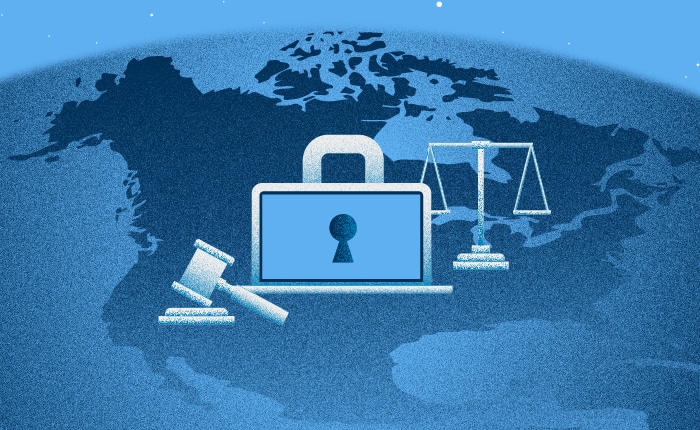Understanding Data Privacy Laws takes center stage, inviting readers into a world shaped by regulations that protect personal information in the digital realm. Get ready for a journey filled with insights and implications that affect us all.
Introduction to Data Privacy Laws
Data privacy laws are regulations that govern the handling of personal information in the digital age. These laws are crucial in safeguarding individuals’ privacy and ensuring that their sensitive data is not misused or exploited.
The main purpose of data privacy laws is to protect individuals’ personal information from unauthorized access, use, or disclosure. By setting guidelines and restrictions on how organizations collect, store, and process data, these laws aim to prevent data breaches, identity theft, and other privacy violations.
Examples of Common Data Privacy Laws
- The General Data Protection Regulation (GDPR) in the European Union, which sets strict rules on data protection and privacy for individuals within the EU.
- The California Consumer Privacy Act (CCPA) in the United States, which grants California residents specific rights over their personal information held by businesses.
- The Personal Information Protection and Electronic Documents Act (PIPEDA) in Canada, which governs how private sector organizations handle personal information.
- The Personal Data Protection Act (PDPA) in Singapore, which establishes rules for the collection, use, and disclosure of personal data by organizations.
Key Components of Data Privacy Laws: Understanding Data Privacy Laws
Data privacy laws are crucial in safeguarding individuals’ personal information and regulating how organizations handle data. These laws typically consist of essential elements that govern the collection, storage, and use of personal data, as well as grant rights to individuals to control their information.
Consent for Data Collection
- Individuals must give explicit consent for their data to be collected by organizations.
- Organizations must clearly state the purpose of data collection and how it will be used.
- Consent must be freely given, specific, informed, and unambiguous.
Data Minimization
- Organizations are required to collect only the data that is necessary for the specified purpose.
- Data collected must be relevant, limited to what is needed, and retained for a limited period.
- Minimizing data reduces the risk of unauthorized access or misuse.
Data Security, Understanding Data Privacy Laws
- Organizations must implement appropriate security measures to protect personal data from breaches or unauthorized access.
- Encryption, access controls, and regular security audits are common practices to ensure data security.
- Violations of data security can result in severe penalties and fines.
Individual Rights
- Individuals have the right to access their personal data held by organizations.
- They can request corrections or deletion of inaccurate or outdated information.
- Individuals also have the right to data portability, allowing them to transfer their data to another service provider.
Compliance Requirements

Organizations must fulfill specific obligations to comply with data privacy laws. These requirements are crucial for safeguarding individuals’ personal information and upholding transparency in data handling practices.
Importance of Compliance
- Implementing robust data protection measures to prevent unauthorized access or breaches.
- Maintaining accurate records of data processing activities to demonstrate compliance with regulations.
- Providing clear privacy notices to individuals regarding the collection and use of their data.
- Obtaining explicit consent from individuals before processing their personal information.
Consequences of Non-Compliance
-
Financial Penalties:
Organizations may face hefty fines for failing to comply with data privacy laws, which can significantly impact their bottom line.
-
Reputational Damage:
Non-compliance can tarnish a company’s reputation and erode trust among customers, leading to loss of business.
-
Litigation Risks:
Legal action may be taken against organizations that violate data privacy regulations, resulting in costly lawsuits and legal proceedings.
Measures for Ensuring Compliance
- Conducting regular privacy impact assessments to identify and address potential risks to data security.
- Implementing data encryption techniques to protect sensitive information from unauthorized access.
- Appointing a Data Protection Officer (DPO) to oversee compliance efforts and act as a point of contact for data protection authorities.
- Providing employee training on data privacy best practices to ensure adherence to regulations at all levels of the organization.
Impact of Data Privacy Laws

Data privacy laws have had a significant impact on both businesses and consumers in today’s digital age. These laws regulate how organizations collect, store, and use personal data, ensuring that individuals have control over their information and are protected from misuse.
Impact on Businesses
- Data privacy laws have forced businesses to invest in robust data protection measures to avoid hefty fines and legal consequences.
- Companies now have to be more transparent about their data practices, building trust with consumers and improving their reputation.
- Businesses are also required to obtain explicit consent from individuals before collecting their data, leading to more ethical data handling practices.
Impact on Consumers
- Consumers now have more control over their personal information, with the right to access, correct, and delete their data from company databases.
- Data privacy laws have increased awareness among consumers about the importance of protecting their privacy online, leading to more cautious behavior.
- Individuals are now more empowered to hold companies accountable for any misuse or breaches of their data, ensuring better data security overall.
Role in Shaping the Future of Data Protection
- Data privacy laws play a crucial role in shaping the future of data protection by setting clear standards and guidelines for organizations to follow.
- These laws are constantly evolving to keep up with technological advancements and emerging threats, ensuring that data protection remains a top priority.
- As more countries around the world implement data privacy regulations, businesses are forced to adopt a global approach to data security, leading to higher standards across industries.